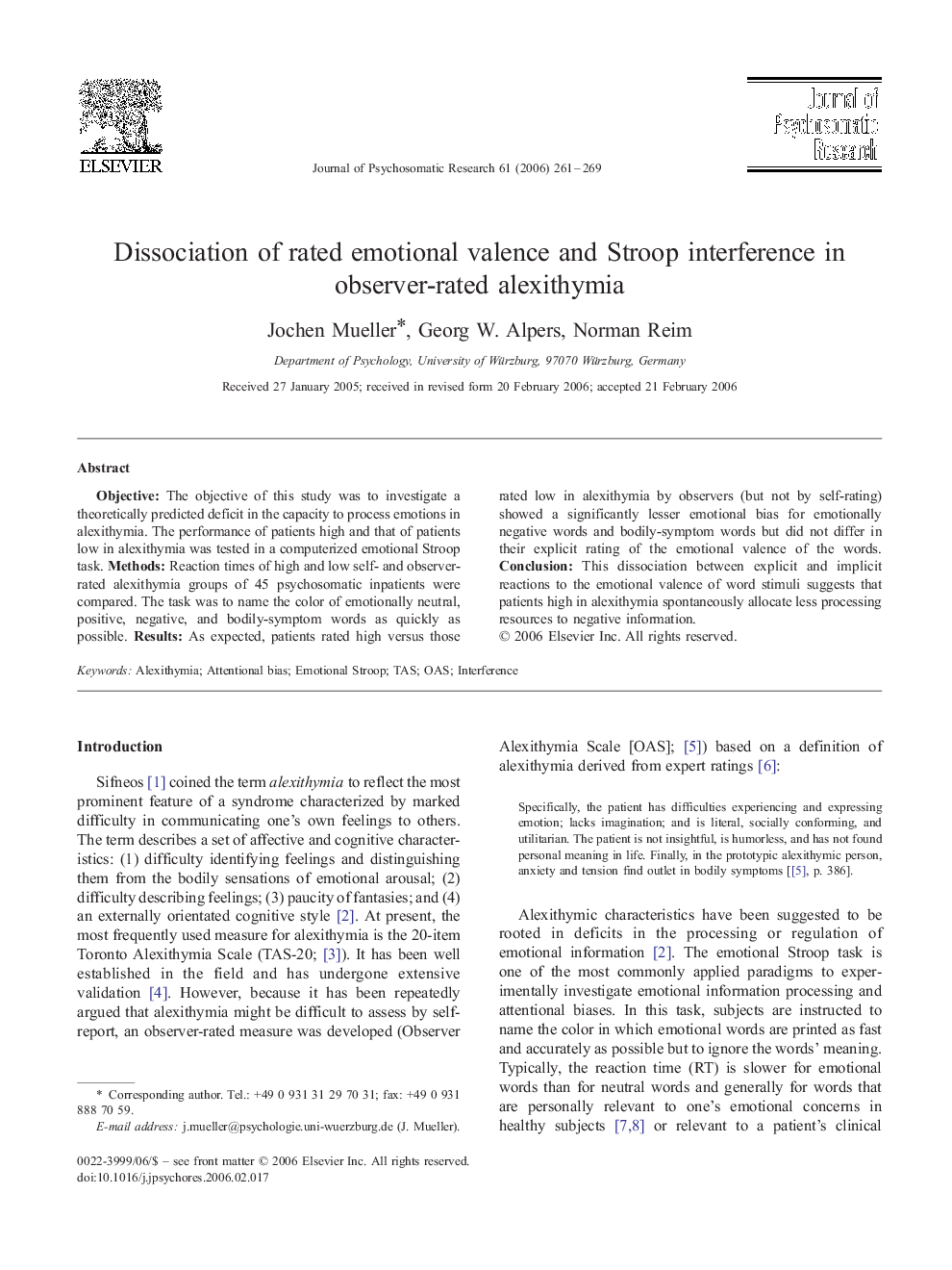| Article ID | Journal | Published Year | Pages | File Type |
|---|---|---|---|---|
| 950753 | Journal of Psychosomatic Research | 2006 | 9 Pages |
ObjectiveThe objective of this study was to investigate a theoretically predicted deficit in the capacity to process emotions in alexithymia. The performance of patients high and that of patients low in alexithymia was tested in a computerized emotional Stroop task.MethodsReaction times of high and low self- and observer-rated alexithymia groups of 45 psychosomatic inpatients were compared. The task was to name the color of emotionally neutral, positive, negative, and bodily-symptom words as quickly as possible.ResultsAs expected, patients rated high versus those rated low in alexithymia by observers (but not by self-rating) showed a significantly lesser emotional bias for emotionally negative words and bodily-symptom words but did not differ in their explicit rating of the emotional valence of the words.ConclusionThis dissociation between explicit and implicit reactions to the emotional valence of word stimuli suggests that patients high in alexithymia spontaneously allocate less processing resources to negative information.
